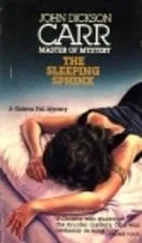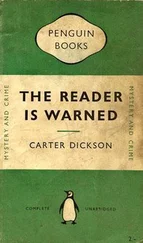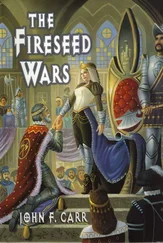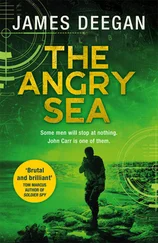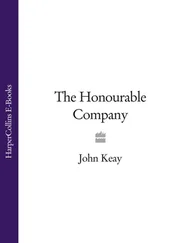John le Carré - The Honourable Schoolboy
Здесь есть возможность читать онлайн «John le Carré - The Honourable Schoolboy» весь текст электронной книги совершенно бесплатно (целиком полную версию без сокращений). В некоторых случаях можно слушать аудио, скачать через торрент в формате fb2 и присутствует краткое содержание. Год выпуска: 1977, ISBN: 1977, Жанр: Триллер, на английском языке. Описание произведения, (предисловие) а так же отзывы посетителей доступны на портале библиотеки ЛибКат.
- Название:The Honourable Schoolboy
- Автор:
- Жанр:
- Год:1977
- ISBN:0-340-49490-5
- Рейтинг книги:5 / 5. Голосов: 1
-
Избранное:Добавить в избранное
- Отзывы:
-
Ваша оценка:
- 100
- 1
- 2
- 3
- 4
- 5
The Honourable Schoolboy: краткое содержание, описание и аннотация
Предлагаем к чтению аннотацию, описание, краткое содержание или предисловие (зависит от того, что написал сам автор книги «The Honourable Schoolboy»). Если вы не нашли необходимую информацию о книге — напишите в комментариях, мы постараемся отыскать её.
The Honourable Schoolboy — читать онлайн бесплатно полную книгу (весь текст) целиком
Ниже представлен текст книги, разбитый по страницам. Система сохранения места последней прочитанной страницы, позволяет с удобством читать онлайн бесплатно книгу «The Honourable Schoolboy», без необходимости каждый раз заново искать на чём Вы остановились. Поставьте закладку, и сможете в любой момент перейти на страницу, на которой закончили чтение.
Интервал:
Закладка:
'Vous restez combien de temps, monsieur?' the immigration officer enquired.
'Toujours, sport,' said Jerry. 'Long as you'll have me. Longer.' He thought of asking after Charlie Marshall then and there, but the airport was stiff with police and spooks of every sort and as long as he didn't know what he was up against it seemed wise not to advertise his interest. There was a colourful array of old aircraft with new insignia but he couldn't see any belonging to Indocharter, whose registered markings, Craw had told him at the valedictory briefing just before he left Hong Kong, were believed to be Ko's racing colours: grey and pale blue.
He took a taxi and rode in front, gently declining the driver's courteous offers of girls, shows, clubs, boys. The flamboyants made a luscious arcade of orange against the slate monsoon sky. He stopped at a haberdasher to change money au cours flexible, a term he loved. The moneychangers used to be Chinese, Jerry remembered. This one was Indian. The Chinese get out early, but the Indians stay to pick the carcass. Shanty towns lay left and right of the road. Refugees crouched everywhere, cooking, dozing in silent groups. A ring of small children sat passing round a cigarette.
'Nous sommes un village avec une population des millions,' said the driver in his schoolroom French.
An army convoy drove at them, headlights on, sticking to the centre of the road. The taxi-driver obediently pulled in to the dirt. An ambulance brought up the rear, both doors open. The bodies were stacked feet outward, legs like pigs' trotters, marbled and bruised. Dead or alive, it scarcely mattered. They passed a cluster of stilt houses smashed by rockets, and entered a provincial French square: a restaurant, an épicerie, a charcuterie, advertisements for Byrrh and Coca-Cola. On the kerb, children squatted, watching over litre wine-bottles filled with stolen petrol. Jerry remembered that too: that was what had happened in the shellings. The shells touched off the petrol and the result was a blood-bath. It would happen again this time. Nobody learned anything, nothing changed, the offal was cleared away by morning.
'Stop!' said Jerry and on the spur of the moment handed the driver the piece of paper on which he had written down the Bangkok bookshop's address for Charlie Marshall. He had imagined he should creep up on the place at dead of night, but in the sunlight, there seemed no point any more.
'Yaller?' the driver asked, turning to look at him in surprise.
'That's it, sport.'
'Vous connaissez cette maison?'
'Chum of mine.'
'A vous? Un ami a vous?'
'Press,' said Jerry, which explains any lunacy.
The driver shrugged and pointed the car down a long boulevard, past the French cathedral, into a mud road lined with courtyard villas which became quickly dingier as they approached the edge of town. Twice Jerry asked the driver what was special about the address, but the driver had lost his charm and shrugged away the questions. When they stopped, he insisted on being paid off, and drove away racing the gear changes in rebuke. It was just another villa, the lower half hidden behind a wall pierced with a wrought-iron gate. He pushed the bell and heard nothing. When he tried to force the gate it wouldn't move. He heard a window slam and thought, as he looked quickly up, that he saw a brown face slip away behind the mosquito wire. Then the gate buzzed and yielded and he walked up a few steps to a tiled verandah and another door, this one of solid teak with a tiny shaded grille for looking out but not in. He waited, then hammered heavily on the knocker, and heard the echoes bounding all over the house. The door was double, with a join at the centre. Pressing his face to the gap, he found himself looking on to a strip of tiled floor and two steps, presumably the last two steps of a staircase. On the lower of these stood two smooth brown feet, naked, and two bare shins, but he saw no further than the knees.
'Hullo!' he yelled, still at the gap. 'Bonjour! Hullo!' And when the legs still did not move: 'Je suis un ami de Charlie Marshall! Madame, Monsieur, je suis un ami anglais de Charlie Marshall! Je veux lui parler.'
He took out a five-dollar bill and shoved it through the gap but nothing bit, so he took it back and instead tore a piece of paper from his notebook. He headed his message 'to Captain C. Marshall' and introduced himself by name as 'a British journalist with a proposal to our mutual interest', and gave the address of his hotel. Threading this note also through the gap, he looked for the brown legs again but they had vanished, so he walked till he found a cyclo, then rode in the cyclo till he found a cab: and no thank you, no thank you, he didn't want a girl — except that, as usual, he did.
The hotel used to be the Royal. Now it was the Phnom. A flag was flying from the mast-head, but its grandeur looked already desperate. Signing himself in, he saw living flesh basking round the courtyard pool and once more thought of Lizzie. For the girls, this was the hard school, and if she'd carried little packets for Ricardo then ten to one she'd been through it. The prettiest belonged to the richest and the richest were Phnom Penh's Rotarian crooks: the gold and rubber smugglers, the police chiefs, the big-fisted Corsicans who made neat deals with the Khmer Rouge in mid-battle. There was a letter waiting for him, the flap not sealed. The receptionist, having read it himself, politely watched Jerry do the same. A gilt-edged invitation card with an Embassy crest invited him to dinner. His host was someone he had never heard of. Mystified he turned the card over. A scrawl on the back read 'Knew your friend George of the Guardian', and guardian was the word that introduced. Dinner and deadletter boxes, he thought: what Sarratt scathingly called the great Foreign Office disconnection.
'Téléphone?' Jerry enquired.
'Il est foutu, monsieur.'
'Electricité?'
'Aussi foutue, monsieur, mais nous avons beaucoup de l'eau.'
'Keller?' said Jerry with a grin.
'Dans la cour, monsieur.'
He walked into the gardens. Among the flesh sat a bunch of warries from the Fleet Street heavies, drinking Scotch and exchanging hard stories. They looked like boy pilots in the Battle of Britain fighting a borrowed war, and they watched him in collective contempt for his upper-class origins. One wore a white kerchief, and lank hair bravely tossed back.
'Christ, it's the Duke,' he said. 'How'd you get here? Walk on the Mekong?'
But Jerry didn't want them, he wanted Keller. Keller was permanent. He was a wireman and he was American and Jerry knew him from other wars. More particularly no uitlander newsman came to town without putting his cause at Keller's feet and if Jerry was to have credibility, then Keller's chop would supply it and credibility was increasingly dear to him. He found Keller in the carpark. Broad shoulders, grey-headed, one sleeve rolled down. He was standing with his sleeved arm stuffed into his pocket, watching a driver hose out the inside of a Mercedes.
'Max. Super.'
'Ripping,' said Keller, after glancing at him, then went back to his watching. Beside him stood a pair of slim Khmer boys looking like fashion photographers in high-heeled boots and bell-bottoms and cameras dangling over their glittering, un-buttoned shirts. As Jerry looked on, the driver stopped hosing and began scrubbing the upholstery with an army pack of lint which turned brown the more he rubbed. Another American joined the group and Jerry guessed he was Keller's newest stringer. Keller went through stringers fairly fast.
'What happened?' said Jerry, as the driver began hosing again.
'Two-dollar hero caught a very expensive bullet,' said the stringer. 'That's what happened.' He was a pale Southerner with an air of being amused and Jerry was prepared to dislike him.
Читать дальшеИнтервал:
Закладка:
Похожие книги на «The Honourable Schoolboy»
Представляем Вашему вниманию похожие книги на «The Honourable Schoolboy» списком для выбора. Мы отобрали схожую по названию и смыслу литературу в надежде предоставить читателям больше вариантов отыскать новые, интересные, ещё непрочитанные произведения.
Обсуждение, отзывы о книге «The Honourable Schoolboy» и просто собственные мнения читателей. Оставьте ваши комментарии, напишите, что Вы думаете о произведении, его смысле или главных героях. Укажите что конкретно понравилось, а что нет, и почему Вы так считаете.

